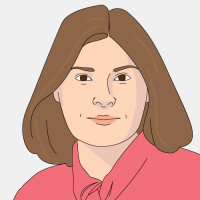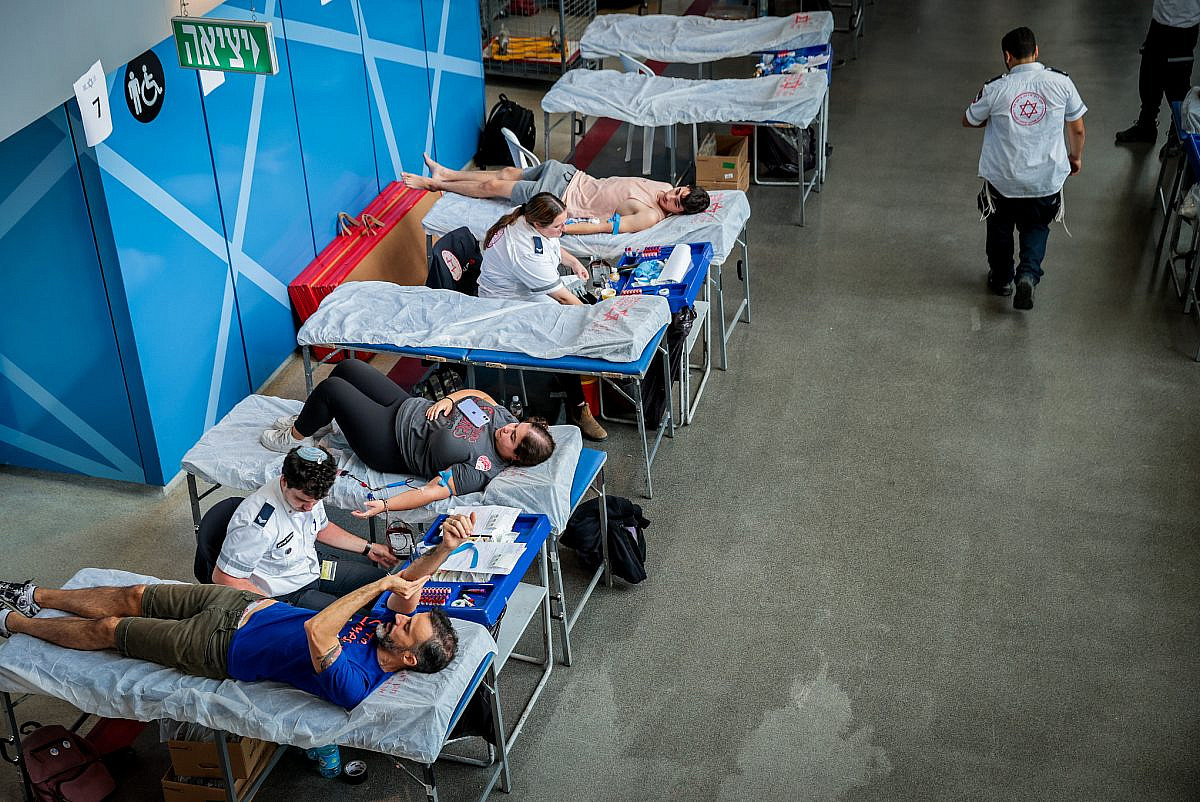Lina Qasem-Hassan, a family medicine specialist and a Palestinian citizen of Israel, serves as the chair of the board of Physicians for Human Rights Israel (PHRI). In the aftermath of Hamas’ October 7 assault on southern Israel and amid Israel’s ongoing war on Gaza, PHRI has been tackling multiple crises simultaneously: advocating for an immediate ceasefire and urging Israel to halt its attacks on the civilian population of Gaza as well as its hospitals, medical infrastructure, and medical workers; providing medical support to the survivors of October 7; and pushing for the release of the Israeli hostages held in Gaza.
Prior to the war breaking out, Qasem-Hassan was scheduled to visit Gaza on Oct. 12 as part of a PHRI delegation. Barred from entering the Strip because of the fighting, she instead joined PHRI colleagues at a makeshift clinic near the Dead Sea that was set up to provide medical care and emotional support to Israelis who were evacuated from Kibbutz Be’eri, one of the communities attacked by Hamas. Since then, her focus has shifted to the collapse of the health care system in Gaza.
In the following conversation, which has been edited for length and clarity, she discusses the work she and her colleagues have been doing with both Israelis and Palestinians since October 7, as well as the urgent need to address the ongoing targeting of hospitals and medical workers in Gaza.
As we speak, Israeli tanks and soldiers have surrounded Al-Shifa, Gaza’s largest hospital, and are invading the complex. Meanwhile, the entire health care system in the northern part of the Strip is on the verge of collapse, and the hospitals in the south aren’t far behind. How are PHRI and your partners locally and around the world responding to the crisis?
All the red lines have been crossed. I personally feel very helpless. The whole world is simply watching on as hospitals [in Gaza] are targeted, as if Palestinian lives aren’t worth saving. Targeting hospitals is prohibited under international law, but no one — really no one — is doing anything to stop Israel’s violations.
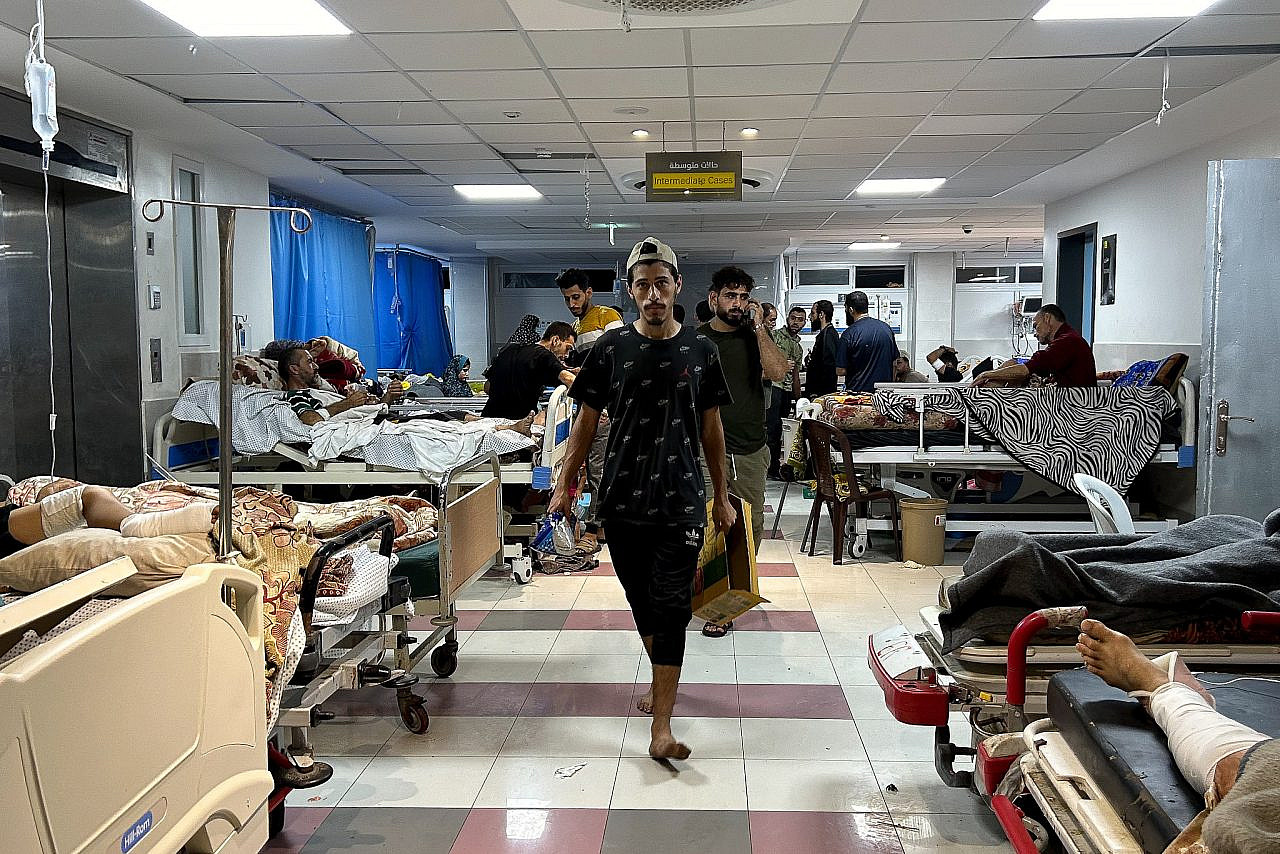
At PHRI, we are trying hard to talk and write and get in touch with the right people, but we cannot stop this assault. What we are seeing at Al-Shifa is no longer just a humanitarian catastrophe: it is a collective death sentence. Israel’s demand to evacuate hospitals is both impossible and illegal. Where do you move people who are in intensive care when there are bombs falling all around you?
Last week, dozens of Israeli physicians issued an open letter calling on the army to bomb Al-Shifa, under the pretext that Hamas is using it as a military base. As shocking and horrifying as this would be if true, it does not in any way justify the killing of innocent civilians. We, as doctors, took an oath to save lives, not to commit mass murder.
PHRI drafted a response to this outrageous letter, saying these doctors were clearly and blatantly calling for nothing less than the destruction of the hospital. What wrong has been committed by a premature newborn in an incubator, or a person whose legs were blown off when their apartment was bombed?
The letter argues that patients can be evacuated south to another location. Yet, there are no hospitals in the Gaza Strip — whether in the north or the south — that have room for them, no ambulances equipped to transport patients needing complicated care, no fuel for the generators needed to power incubators for premature babies, and no physicians to accompany them on the journey. We have to look past the deception: this is a death sentence for the patients and hospital staff.
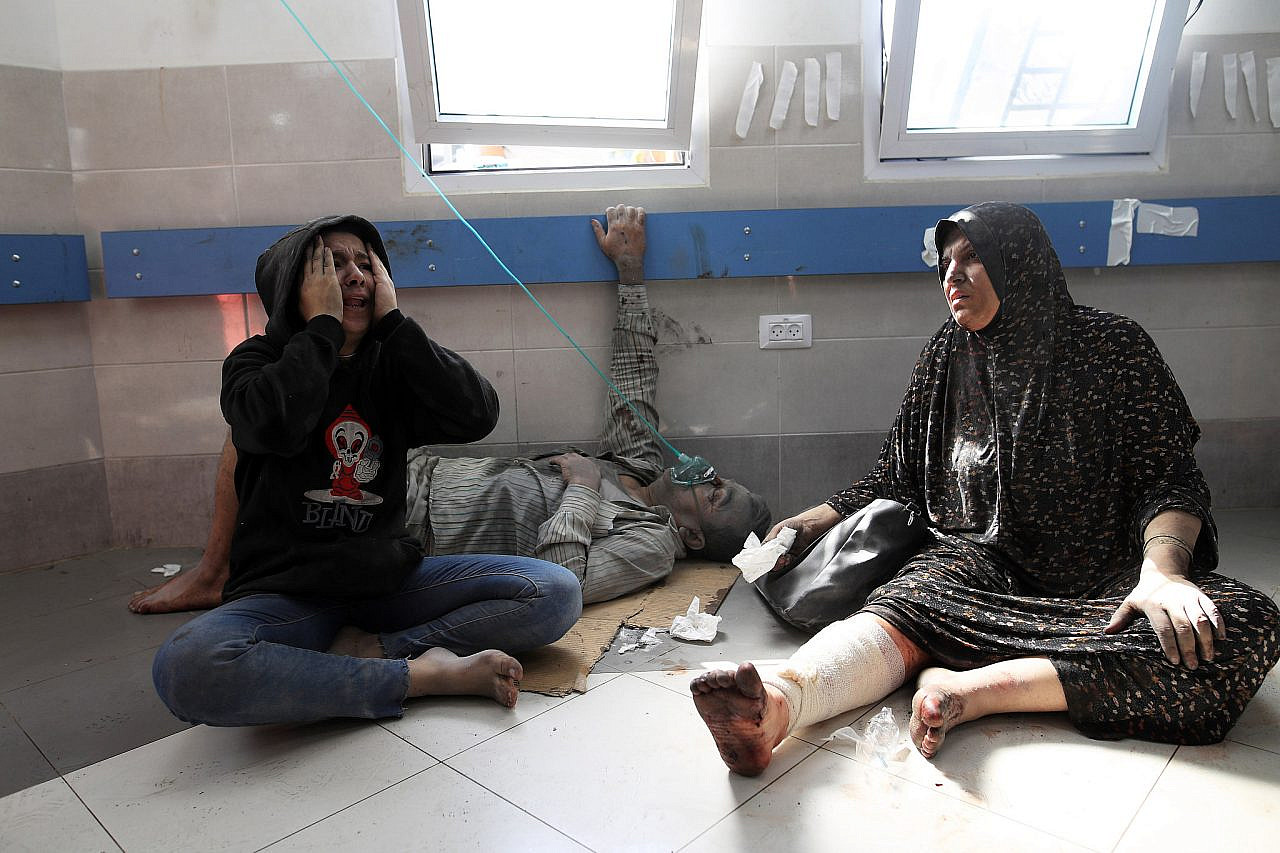
For more than a month now, I have been watching the catastrophe unfolding before our eyes in Gaza, and I also keep thinking about the terrible events of October 7. I am angry and deeply sad and am wrestling with emotions that may seem contradictory. I’m asking myself so many questions. It feels like this is a test of our values and humanity.
Why did you go to the Dead Sea hotels to meet and help survivors of October 7?
Right after the Hamas massacres, PHRI started receiving pleas for help from survivors. We opened a clinic on Monday, Oct. 9. We were there and operating even before the state-run clinics were set up. Our clinic serviced the survivors of Kibbutz Be’eri.
I went to our clinic two days after it opened. I felt that as a human being, as a doctor, and as the chairwoman of PHRI, I had to be there, to give medical help and express my solidarity with their pain — the human pain, regardless of the nationality or religion of the people experiencing it. It was also important for me to be there to support the PHRI team because some of them lost relatives and friends in the attack.
What was the scene like at the clinic?
It’s really hard to describe. The minute I walked in, I felt as if I were in a refugee camp. I walked into this fancy new hotel, but all the people around seemed lost. You could see the fear and despair in their eyes. They are all traumatized. Every person from the kibbutz was in a state of shock. They literally did not know who was alive, who was dead, and who was abducted.
The lobby of the hotel was full of donated items, clothes, wet wipes — it was like an UNRWA [the UN Relief and Works Agency, which has serviced Palestinian refugees since the Nakba of 1948] center. This is a pretty well-off community, but in war all people are equal in their misery. The rich and the poor live in the same conditions, suffering from the same human disaster.
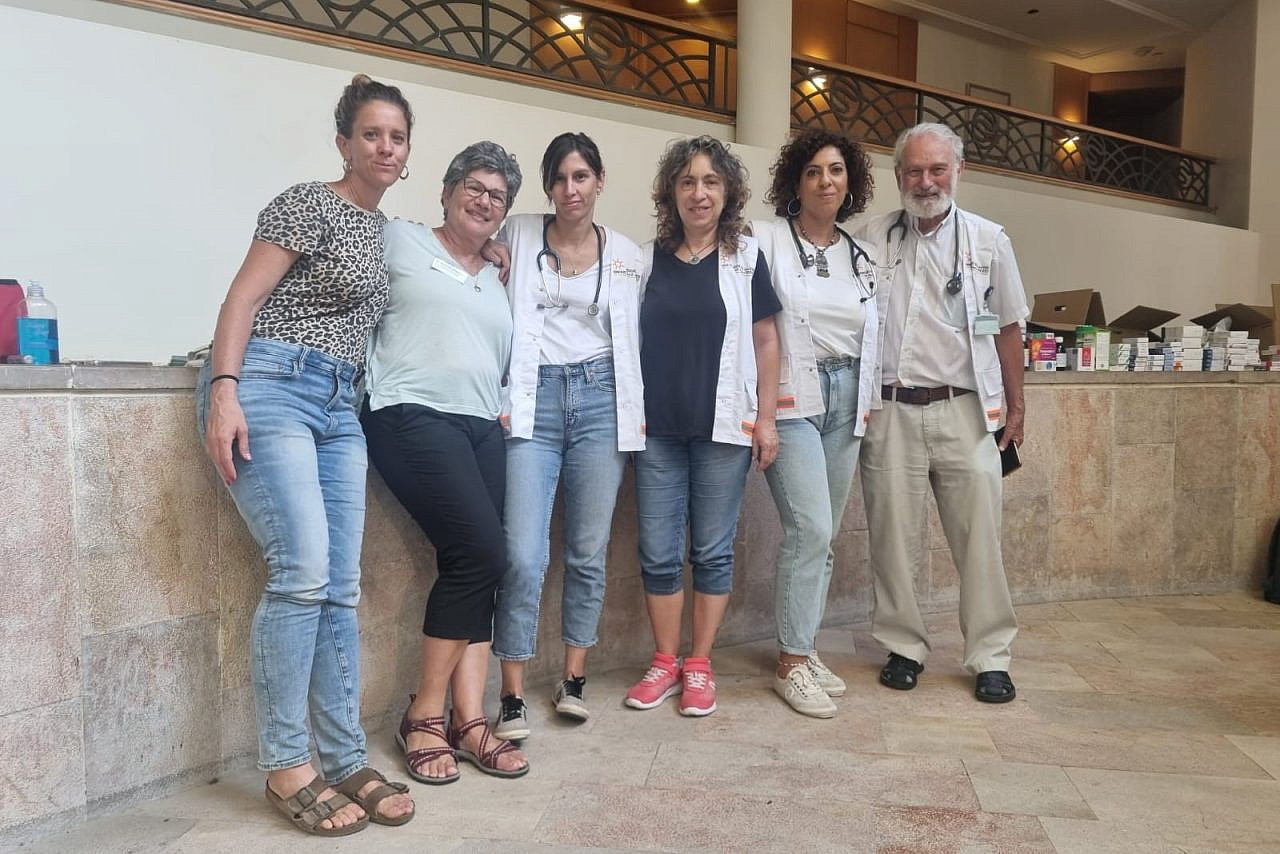
We brought medicine to the survivors, especially the elderly. Some of the elderly people I met there told me that they had spent more than 20 hours hiding in their safe rooms [built to withstand rocket blasts, and where many hid from Palestinian militants who infiltrated their communities] on October 7 with their caretakers, without water or their medications.
What’s absurd is that I was planning to be in Gaza the following day with a delegation from PHRI. Instead I went to the Dead Sea with the same equipment that I planned to take to Gaza. Is this symbolic? Or just absurd? I don’t know.
The toughest thing I saw there were the daily gathering they called the “Bad News Forum.” Every day, the survivors gathered in the hotel’s conference room — only the adults, as well as the medical teams who joined to offer support. The kibbutz leadership sat on the stage with two lists, and they started reading names. The first list was those who had been identified and confirmed dead, and the second list was the people who remained missing.
Every day, names from the second list were moved to the first one. Among the list of the dead, I heard the names of entire families being read out: father, mother, children, and grandchildren. It was awful. And when I was there, listening to all the names, I couldn’t help but think about who would be reading the names of the dead families in Gaza.
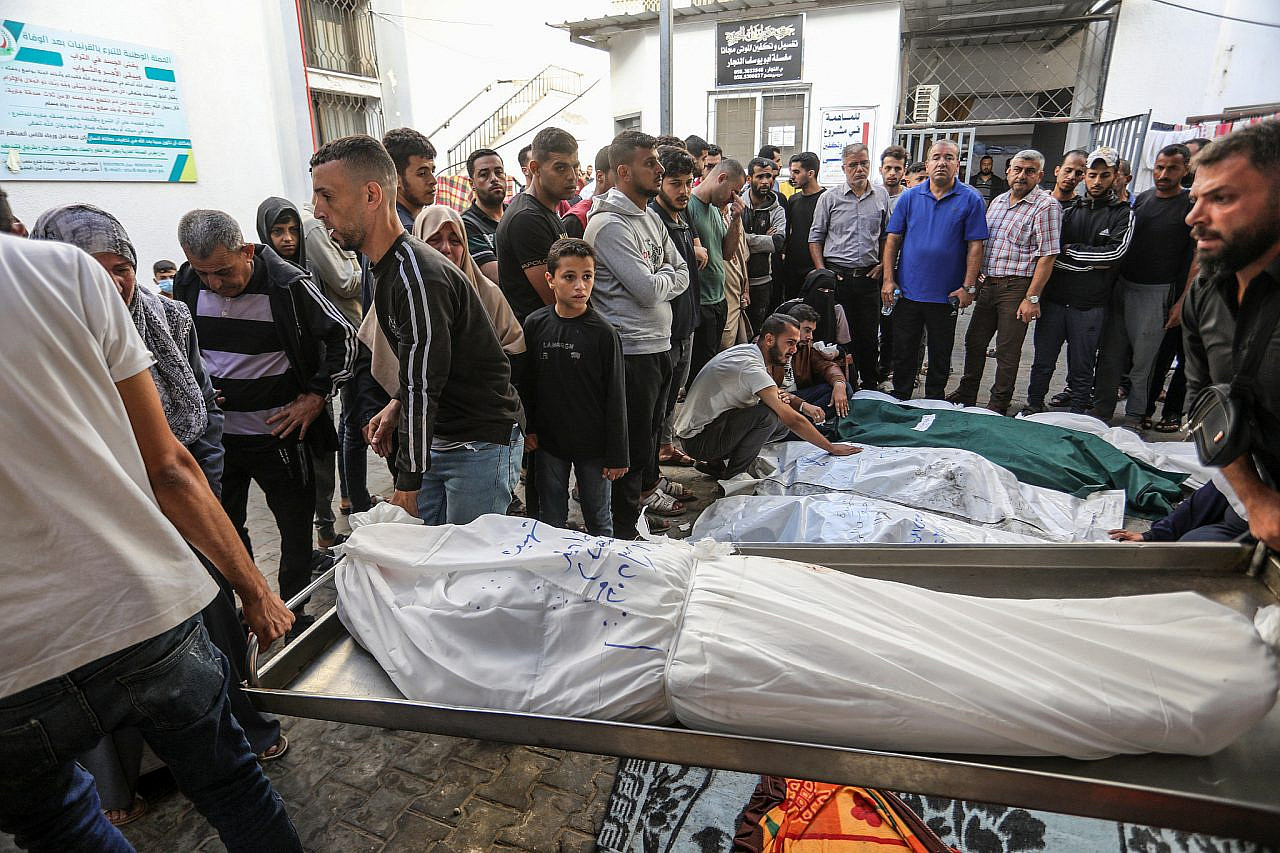
This is the main difference between me and the other doctors who were there. In Gaza, there are people trapped under rubble, and no one knows their names, and no one will read them out from a list. I fully sympathize with the victims of October 7 and their families; my heart also goes to the victims in Gaza and their families, including my own family.
You have family in Gaza?
Yes, my sister-in-law’s siblings live in Gaza. Her brother was killed in the first Israeli airstrikes on October 7. My sister-in-law is originally from Gaza, but moved to Nazareth a long time ago.
At around 1 p.m. on the first day of the war, I heard Maali, my sister-in-law, screaming and crying. Her brother Marwan was an ambulance driver and paramedic at the European Hospital in Khan Younis. He went out to bring injured people to the hospital. Eleven ambulances were hit on that first day. His ambulance was one of them, and he died on the spot.
Did you know Marwan?
Yes, I met him during my first visit to Gaza, in July 2021. That was two months after the Unity Intifada [the name given to the Palestinian uprising of May 2021], and I was part of the PHRI delegation to Gaza. He showed me his house in Khuza’a [a town near Khan Younis], and introduced me to the whole family. His home was new, the whole neighborhood was new. That area was destroyed in the 2014 war and rebuilt around 2020-21.
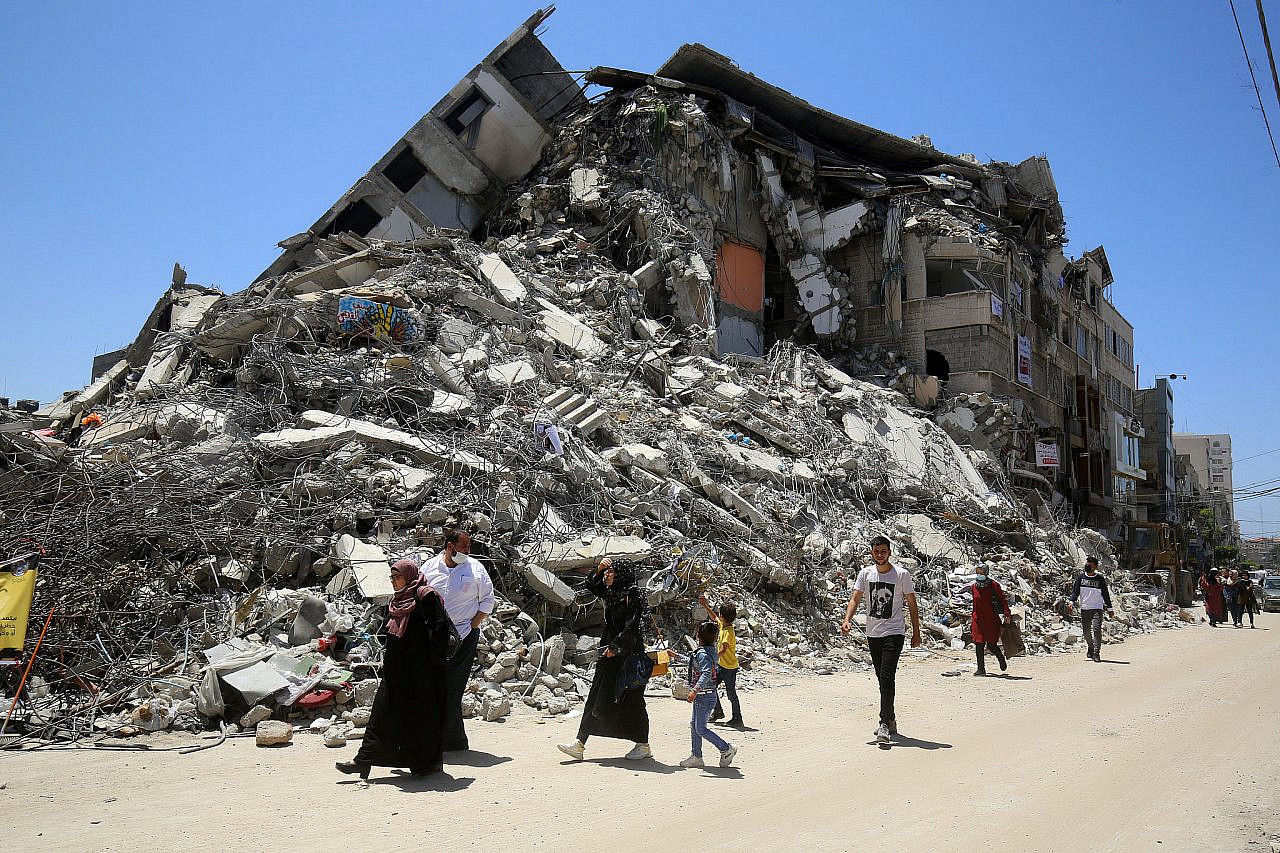
He had a very modest and simple life: it was tough, he didn’t make a lot of money, and the blockade and constant rounds of war with Israel [made it difficult], but he was still proud of his work, happy with his family, and trying to enjoy life.
Marwan showed me “life” in Gaza. During my visits, I mainly see the terrible medical and living conditions in Gaza. We visit hospitals and clinics and treat severe cases. We visit refugee camps. But Marwan took me to the seaside, to the promenade, and there you see life, you see families enjoying the sea. It was summer, and modest coffee shops on the shore were full of families and children.
He showed me around the Al-Rimal neighborhood — all destroyed now. There, Gaza was alive and kicking. Yes, life is simple, but if Gaza was open to the world, it would be one of the most beautiful places in Palestine.
What kind of work did PHRI do in Gaza before this war?
We started sending delegations to Gaza back in 2006, about once every two months. Our presence has proven to be a lifeline for many of Gaza’s patients. The delegation usually comprises 30 members — half psychologists and half physicians from other specialities: surgeons, ophthalmologists, pediatricians, and gynecologists. Together we hold a comprehensive range of medical expertise.
We held an open clinic in refugee camps and offered medical consultations to those who may not have had regular access to healthcare. In addition to these outreach initiatives, delegations also performed surgeries in Gaza hospitals, providing essential medical interventions for those in need. One particularly noteworthy achievement is the groundbreaking kidney transplant from a living donor that we performed in Gaza this year.
I was struck by the overwhelming generosity and beauty of the people in Gaza, despite their modest lifestyles. But I’ve also witnessed firsthand the immense hardships and consequences that the ongoing siege has on their daily lives, which dominated everywhere we went.
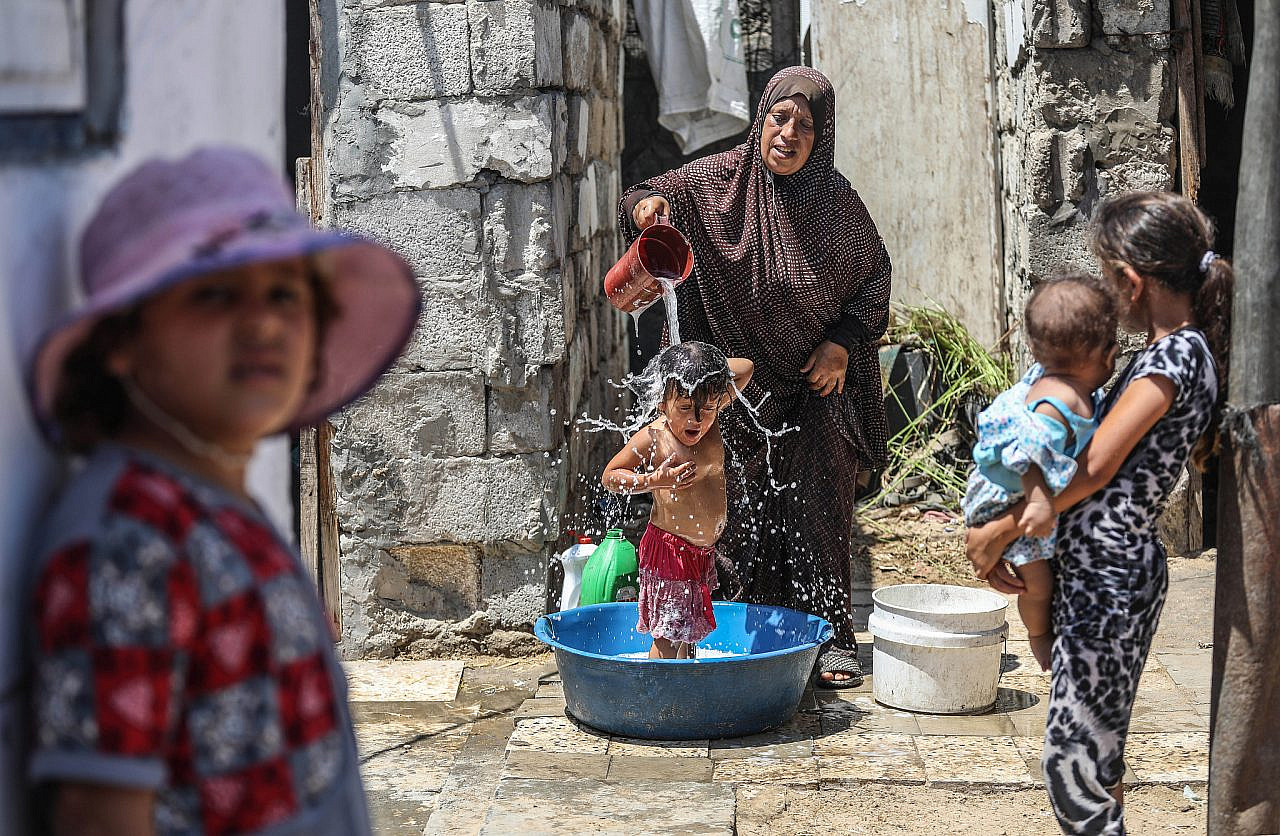
There are many people who do not have the privilege to think about health matters. In refugee camps, life is a daily struggle for survival. More than 75 percent of children are anemic. Kids do not gain weight because there are nutritional issues. I met parents in Gaza who told me that all they have at home are lentils, rice, and corn oil — the three ingredients they get from UNRWA — so that is what the children eat.
At the beginning of our interview, you said that the war was forcing you to ask yourself many difficult questions. What questions has it brought up for you and for PHRI?
I went to the Dead Sea to help survivors of the Hamas attack, just a few days after the war started. The number of Palestinian casualties in Gaza was not as high then as it is now, after more than a month of fighting. Every day I hear about more casualties, about the destruction of all aspects of life in Gaza, including the health care system. I see the disproportionate Israeli response, the ongoing talk of vengeance, the thirst for destruction and blood.
I hear and I see all of this, and I’ve asked myself whether it was right to go and to be there with the Jewish victims — but the answer is always yes. That was the right thing to do: on a human, a professional, and a national level. Civilians on both sides must not be hurt.
What has been the experience of you and your colleagues as Palestinian doctors working in Israel?
It’s very difficult these days. Medical teams with doctors like me, who are Palestinian citizens of Israel and work in Israeli hospitals, are politically persecuted, intimidated, and silenced by the state, just like all Palestinians in Israel. There is no legitimacy granted to Palestinian pain — none at all. It is not legitimate to show or express any sympathy with the civilian victims in Gaza, not even the children. It is not legitimate to call for a ceasefire. This makes our work all the more difficult.
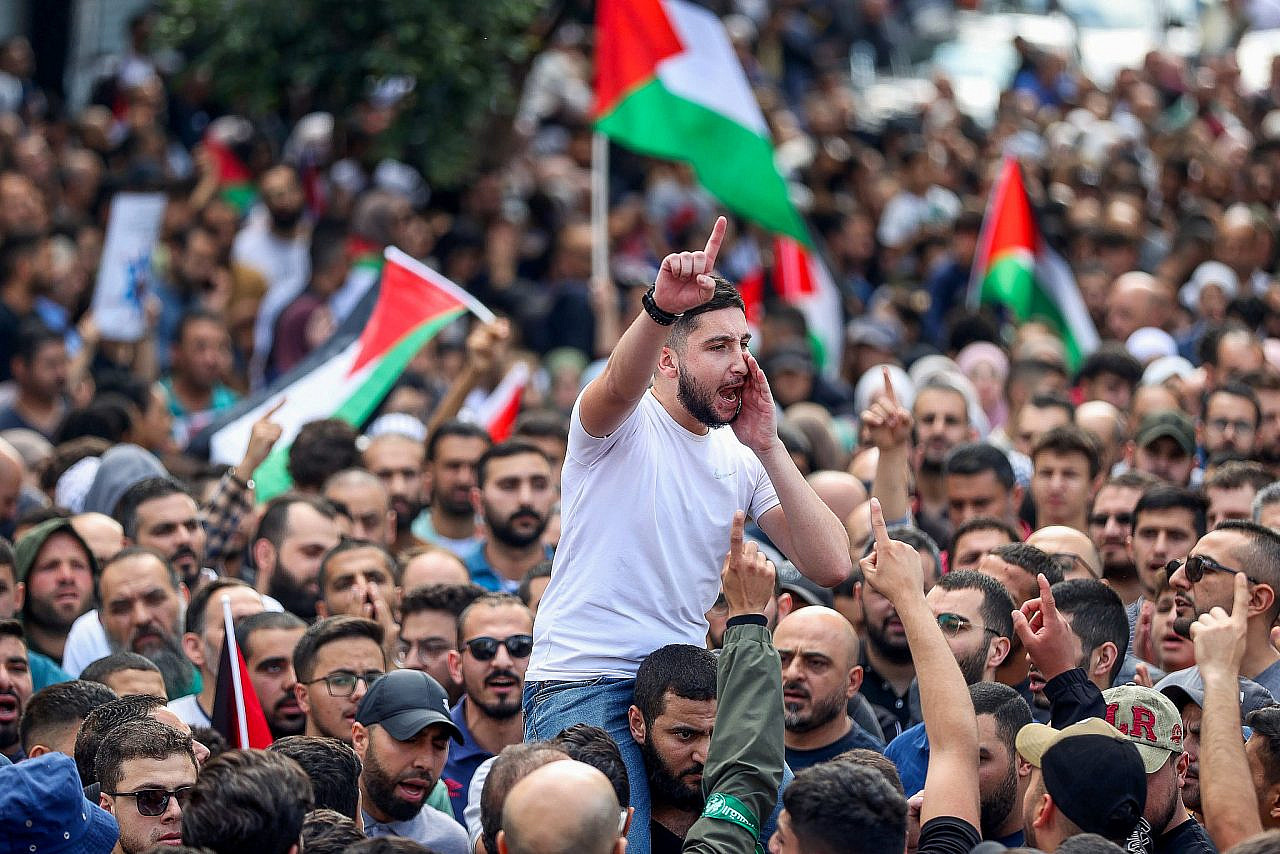
Palestinians play a crucial role in the Israeli health system: we comprise 30 percent of the doctors, 30 percent of the nurses, and some 40 percent of the pharmacists, and all of us are being watched these days. The health system has adopted a McCarthyist witch-hunt approach toward all Palestinians. There are many cases of intimidation and persecution against medical personnel: according to civil society coalitions monitoring political persecution at workplaces since the war began, some 20 percent of the reported cases are of medical teams.
This is not entirely new. We were always asked to come and do our job, play a crucial role in the health system, but keep our feelings and political views at home. Now, though, things are much worse.
Medical personnel are being accused of supporting terror for liking a social media post, or for showing any sympathy with Palestinian pain or suffering. We cannot engage in any intellectual or moral conversation about the war. We are expected to condemn Hamas and join the patriotic Israeli military frenzy, while silently watching our Jewish colleagues cheer for the destruction of hospitals, the killing of innocent Palestinian civilians, and the tightening of the blockade.
Most read on +972
Despite going to the Dead Sea and helping the residents of Kibbutz Be’eri, and despite condemning the Hamas atrocities, I am still asked to keep condemning [the October 7 attacks] every single day. I can’t keep explaining myself over and over again.
Something striking happened at my own clinic a few weeks ago. I usually don’t share news or posts about my public activities with PHRI in the clinic’s WhatsApp group, because I know it would be controversial — I have Jewish and Arab patients and colleagues. This time, after coming back from the Dead Sea, I decided to share a picture and write a few words about the work PHRI was doing there. One Jewish nurse replied: “Human rights to the residents of the State of Israel only.”
This is the atmosphere now, in my clinic and in Israel. The more than 2 million people in Gaza are not seen as human beings. Pain and human rights belong to one side only.

